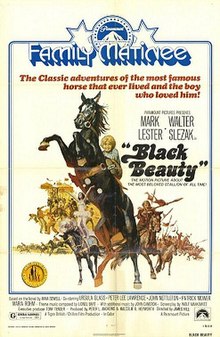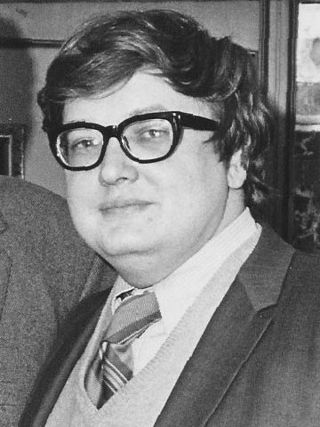
Roger Joseph Ebert was an American film critic, film historian, journalist, screenwriter, and author. He was a film critic for the Chicago Sun-Times from 1967 until his death in 2013. In 1975, Ebert became the first film critic to win the Pulitzer Prize for Criticism. Neil Steinberg of the Chicago Sun-Times said Ebert "was without question the nation's most prominent and influential film critic," and Kenneth Turan of the Los Angeles Times called him "the best-known film critic in America."

Anna Sewell was an English novelist. She is known as the author of the 1877 novel Black Beauty, her only published work, which is considered one of the top ten best selling novels for children, although the author intended the work for an adult audience. Sewell died only five months after Black Beauty's publication, having lived long enough to see her only novel become a success.

Helga Ursula "Uschi" Glas, sometimes credited as Ursula Glas, is a German actress in film, television and on stage, and a singer.
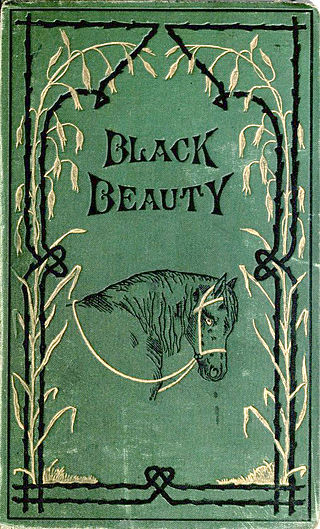
Black Beauty: His Grooms and Companions, the Autobiography of a Horse is an 1877 novel by English author Anna Sewell. It was composed in the last years of her life, during which she was bedridden and seriously ill. The novel became an immediate best-seller, with Sewell dying just five months after its publication, but having lived long enough to see her only novel become a success. With fifty million copies sold, Black Beauty is one of the best-selling books of all time.

Mark Rappaport is an American independent/underground film director and film critic, who has been working sporadically since the early 1970s.
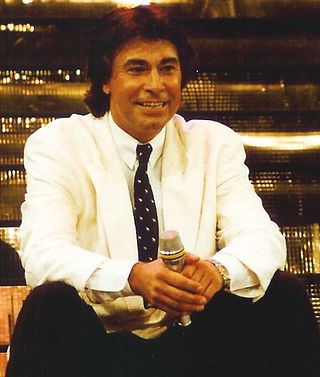
Gerhard Höllerich, known professionally as Roy Black, was a German schlager singer and actor, who appeared in several musical comedies and starred in the 1989 TV series, Ein Schloß am Wörthersee.
Docs Keepin Time was a black American Quarter Horse who portrayed Black Beauty in the 1994 film adaptation of Anna Sewell's novel. Docs Keepin Time also portrayed The Black in the American television series The Adventures of the Black Stallion.
Black Beauty is an 1877 novel by Anna Sewell.

Black Beauty is a 1994 drama film scripted and directed by Caroline Thompson in her directorial debut. The fifth cinematic adaptation of Anna Sewell's 1877 novel of the same name, the film stars Andrew Knott, Sean Bean and David Thewlis. Produced and distributed by Warner Bros. under their Warner Bros. Family Entertainment label, it is also treated as an autobiography of the horse Black Beauty as in the original novel, and features Alan Cumming as the voice of the 'Black Beauty'.

Dirty Dingus Magee is a 1970 American comedy revisionist Western film directed by Burt Kennedy and starring Frank Sinatra as the title outlaw and George Kennedy as a sheriff out to capture him. The movie was based on the novel The Ballad of Dingus Magee by David Markson and the screenplay was partly written by Joseph Heller.

Emanuelle and the Last Cannibals is a 1977 Italian sexploitation cannibal film directed by Joe D'Amato. The film involves photojournalist Emanuelle, who encounters a cannibalistic woman bearing a tattoo of an Amazonian tribe in a mental hospital. Along with Professor Mark Lester, the two travel to the Amazon with a team to discover the source of the long-thought-extinct tribe that still practices cannibalism today.

Running Free is a 2000 American-French-South African adventure drama film about a horse born into captivity in 1914. The film began production in 1998 and was released in the US in June 2000. It was directed by Sergei Bodrov, written and produced by Jean-Jacques Annaud, narrated by Lukas Haas, and distributed by Columbia Pictures.
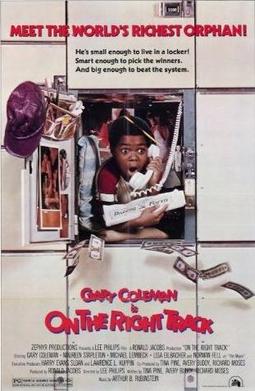
On the Right Track is a 1981 American romantic comedy film with the feature film debut of Gary Coleman. It was directed by Lee Philips, produced by Ronald Jacobs, and released to theaters by 20th Century Fox in the spring of 1981.

Black Beauty is a 1946 American drama film directed by Max Nosseck and starring Mona Freeman, Richard Denning, and Evelyn Ankers. It is based on Anna Sewell's 1877 novel of the same name.

The Bravo Otto is a German accolade honoring excellence of performers in film, television and music. Established in 1957, the award is presented annually, with winners selected by the readers of Bravo magazine. The award is presented in gold, silver and bronze and, since 1996, an honorary platinum statuette presented for lifetime achievement.
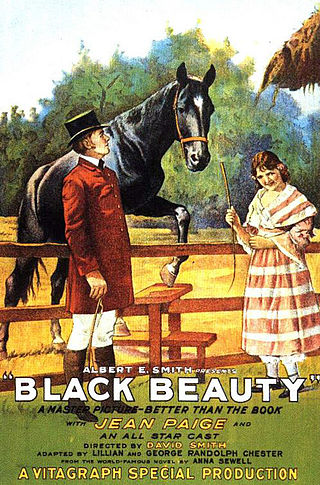
Black Beauty is a 1921 American silent film version of Anna Sewell's 1877 novel of the same name. Black Beauty is an autobiography of a horse, who tells the story of his life and of the people surrounding it. This film exists in an incomplete state with four of seven reels preserved at the Library of Congress.

Black Beauty is a 2020 adventure drama family film written, edited and directed by Ashley Avis and based on the 1877 novel of the same name by Anna Sewell. A co-production between the United States, the United Kingdom, South Africa, France and Germany, it stars Kate Winslet, Mackenzie Foy, Claire Forlani, Iain Glen and Fern Deacon and is the sixth cinematic adaptation. In the film, Black Beauty is portrayed as a mare instead of a stallion and is brought to Birtwick Park where she forges a bond with a spirited teenager that carries through different chapters, challenges and adventures. Originally scheduled for a theatrical release, it was unable to be released in cinemas due to the negative effects of the COVID-19 pandemic. The film's distribution rights were acquired by Walt Disney Studios and was released on the company's streaming service Disney+ on November 27, 2020. It received mixed reviews from critics. The film was removed from Disney+ on May 26, 2023.

The Monk with the Whip is a 1967 West German mystery thriller film directed by Alfred Vohrer and starring Joachim Fuchsberger, Uschi Glas and Grit Boettcher. It is inspired by the 1926 novel The Black Abbot and subsequent 1927 play The Terror by Edgar Wallace which also served as the basis for the 1965 film The Sinister Monk. It was made as part of a long-running series of film adaptations of his work produced by Rialto Film.
Lady Susan Chitty was an English novelist and a writer of biographies. Her memoir on her mother, which was viewed as a "literary assassination", caused an uproar with writers and family.
